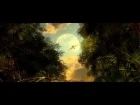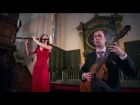Wilhelm Furtwangler | en
Johann Wilhelm Hertel (9 October 1727 – 14 June 1789) was a German composer, harpsichord and violin player.
He was born in Eisenach, into a family of musicians. His father, Johann Christian Hertel (1697-1754) was Konzertmeister (from 1733) and director of music at the Eisenach court, while his grandfather, Jakob Christian Hertel (ca. 1667-ca. 1726), had been Kapellmeister in Oettingen and later Merseburg. At an early age Johann Wilhelm accompanied his father, an accomplished viol player, on tour at the harpsichord. He also learned the violin, which he studied with Franz Benda. In 1742 he came with his father to...
In 1998, Daniel discovered his love for electronic music. After some uncertainities and having experimented with a number of different genres in the beginning, his passion for the Progressive Technosound of 'Chris Liebing', 'Cari Lekebusch' or 'Sven Väth' came to the fore.
As he himself says, his sound has greatly 'evolved' over the years. Today he plays a unique style, a personal mix of new House and Tech-House sounds that have a huge influence on the scene, and old, more technoide sounds such as those from 'George Morel' or 'Der dritte Raum'.
But he is not only at home in...
Johann Wilhelm Wilms (baptized March 30, 1772 in Witzhelden near Solingen, died July 19, 1847 in Amsterdam) was a Dutch-German composer, best known for writing Wien Neerlands Bloed, which served as the Dutch national anthem from 1815 to 1932.
After lessons from his father and oldest brother in piano and composition, Wilms studied flute on his own. He moved to Amsterdam in 1791 where he played flute in two orchestras and was soloist in Mozart and Beethoven piano concerti, giving them their Dutch premieres. He also taught piano at the Koninklijk Nederlandsch Instituut voor Wetenschappen, interviewed applicants for church organist...
Olof Wilhelm Peterson-Berger (born 27 February 1867 in Ullånger, Ångermanland, Sweden, died 3 December 1942 in Östersund, Sweden) was a Swedish composer.
Peterson-Berger is best known for three albums of national romantic piano pieces entitled Frösöblomster I, II and III (Frösö Flowers), which includes the often performed Vid Frösö kyrka (At Frösö Church) and Sommarsång (Summer Song). His main musical influences were Edvard Grieg and Richard Wagner. His other works included the symphonies Sunnanfärd and Same-Ätnam, as well as the operas Ran, Arnljot, Domedagsprofeterna and Adils och Elisiv. Arnljotis still performed as a musical drama at Arnljotlägden, close to Peterson-Berger's...





![A WILHELM SCREAM [1080p] Paris - 30/07/2016 A WILHELM SCREAM [1080p] Paris - 30/07/2016](/storage/web/cache/videos/big/20_06_2019/muzlan_bb73fad06b387e8d86fa91906279f679.jpg?h=140&w=140&fm=webp&s=cb2a605c37b4188df7cfe3caf2bbf779)
